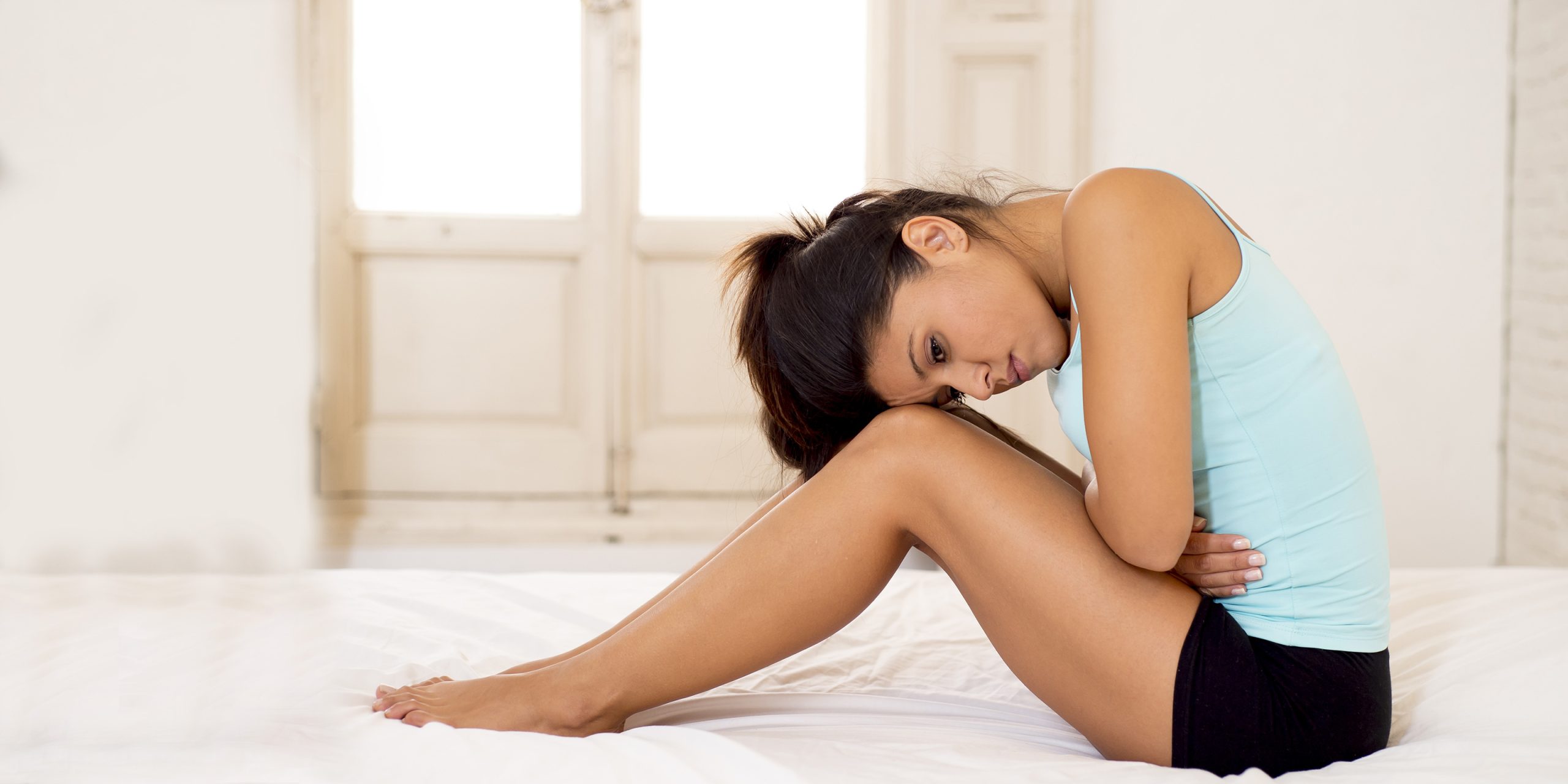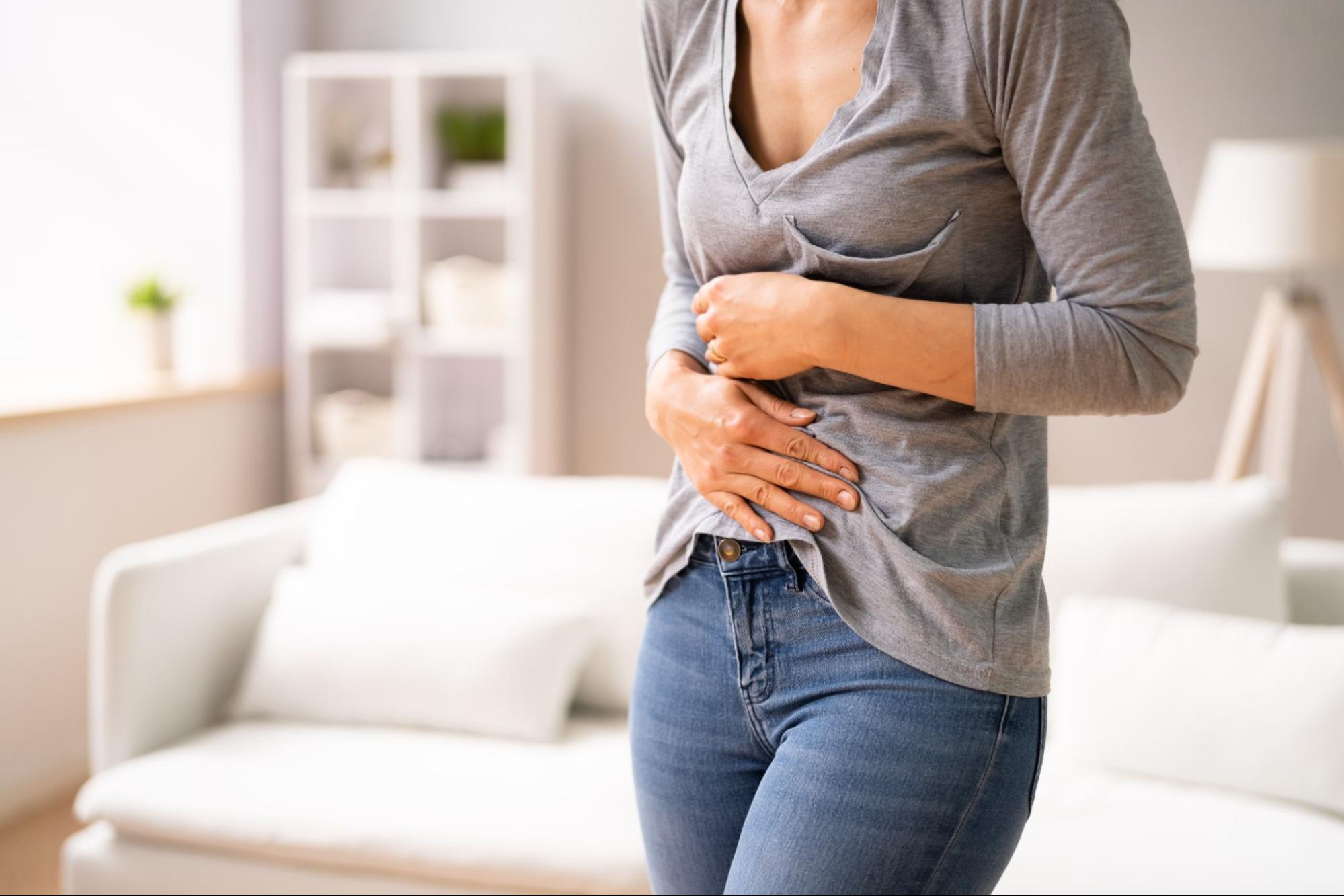For many women, period cramps are a monthly discomfort. But what if you’re experiencing cramps not only during your period but also in between? Could it be something more serious than your average period discomfort? It’s essential to know that these cramps may not be normal and could be signaling an issue unrelated to your period.
One possible culprit for these cramps could be uterine fibroids. While menstrual cramps are common, persistent or severe pain could indicate the presence of these non-cancerous growths. But how do you differentiate between normal menstrual cramps and those caused by fibroids? In this post, we will look into whether fibroids can be a cause of cramping between periods, and find out the relationship between these uterine growths and irregular abdominal discomfort.

Contents
Can Fibroids Cause Cramping Between Periods?
Fibroids can cause severe menstrual cramps through several mechanisms related to their presence in or around the uterus:

1. Pressure on Uterine Muscles
Fibroids are tumors that grow from the muscle layers of the uterus. When these tumors enlarge, they can exert pressure on the surrounding uterine muscles. This added pressure forces the uterus to work harder to contract and shed its lining during menstruation, which can intensify the pain experienced during cramps.
2. Increased Uterine Contractions
Fibroids can increase the amount of prostaglandins—chemicals that cause the uterus to contract, similar to labor pains—produced during menstruation. Higher levels of prostaglandins are associated with more severe menstrual cramps.
3. Blood Flow Disruption
Fibroids can affect the normal pattern of blood flow to and from the uterus. Poor blood flow can lead to a build-up of waste products in the uterine muscle, which can stimulate pain receptors and heighten the sensation of cramps.
4. Enlargement of the Uterus
As fibroids grow, they can make the uterus larger than normal. A larger uterus must shed more endometrial lining, leading to more intense contractions during menstruation, which can result in more painful cramps.
5. Location of Fibroids
The location of fibroids within the uterine wall can also play a crucial role in how much pain a woman experiences during her menstrual cycle. Fibroids that are located closer to the endometrial cavity tend to cause more severe symptoms.
What to Do if Fibroids are Causing Excruciating Menstrual Cramps
Excruciating menstrual cramps caused by fibroids can be debilitating and significantly impact your daily life. Here are some steps you can take:

1. See a Doctor:
Diagnosis and Treatment Plan: First and foremost, schedule an appointment with your doctor. They can confirm if fibroids are causing your cramps and develop a personalized treatment plan. This may involve medication, minimally invasive procedures, or surgery depending on the severity of your fibroids.
2. Pain Management Strategies:
- Over-the-Counter Pain Medication: Pain relievers like ibuprofen or naproxen can help manage cramps.
- Heat Therapy: Applying a heating pad or hot water bottle to your lower abdomen can relax muscles and ease cramps.
- Rest: Getting plenty of rest during your period allows your body to focus on healing.
3. Lifestyle Changes:
- Exercise: Regular exercise can improve circulation and reduce pain perception. Low-impact exercises like walking, swimming, or yoga might be helpful.
- Diet: Consider reducing your intake of red meat and processed foods, which can worsen inflammation.
Frequently Asked Questions
What symptoms do fibroids cause?
Fibroids often cause severe menstrual cramps and cramping in between periods. Other symptoms may include pain during sexual intercourse, increased urination, and constipation. Large fibroids can also cause lower abdominal discomfort of pressure.
Do fibroids cause more severe menstrual cramps?
Yes. Fibroids often exacerbate menstrual cramps by disrupting normal uterine contractions and cutting off the oxygen supply to the uterus. This leads to intense and prolonged menstrual pain.
How can you manage fibroid-induced cramps?
OTC medications like NSAIDs can help manage the pain. It’s also recommended to make lifestyle changes such as maintaining a balanced diet, exercising regularly, and practicing stress management. In severe cases, medical professionals may suggest hormonal therapies, IUD with progestin, or surgical procedures.
What should I do if I have severe cramps caused by fibroids?
It’s essential to seek help from a healthcare professional. They will evaluate your symptoms, may order diagnostic tests, and can provide treatment options suited for your case. Ignoring severe cramping can potentially lead to more serious health issues.
Can fibroids affect day-to-day activities?
In some cases, yes. Large fibroids can pressure the lower abdomen and pelvis, making it difficult to carry out activities like lying facedown, bending over, or exercising without experiencing discomfort.
I am a medical student with experience and interest in Women’s health and well-being.